The Peace Race; when I was a lad it was spoken of in hushed tones, the toughest amateur stage race on the planet – the ‘Eastern Bloc Tour de France’ as many would have it.
But more than a race, a clash of ideologies, tough, Communist East meets decadent, Capitalist West and also an opportunity for the Soviet Union’s forcibly adopted children – East Germany, Poland and Czechoslovakia to bite their giant Russian step-parent’s ankles.
Most of the time the Western riders could but watch, in awe, as the East Germans and Russians attempted to kill each other.
Only once has an English speaker won this event – in 1952 Scotland’s own Ian Steel took the honours.
We were fortunate at VeloVeritas to interview the great man before his death, last year and before we’re done we’d like to speak to all surviving Scots who’ve participated in this historic event.
Sandy Gilchrist, Jimmy Rae, Martin Coll and Ken Clark have all been kind enough to give of their time to us; next on our agenda is former Scottish 50 mile record holder, Velo Sportiv stalwart and all rounder, Mr. Ron Gardiner.
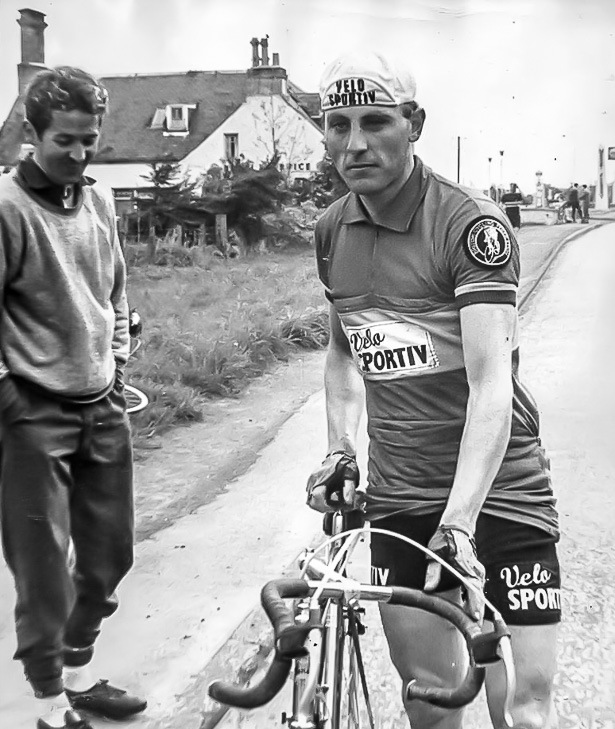
Your first race, Ron?
“That would be an ‘unofficial’ 28 minute ride on 69” fixed on the Tranent course in the Tranent Thistle Xmas ‘10’ in 1958; a Musselburgh lad won it with a ’26.’
“My second race was a 24:59 on 79” fixed for second in a pre-season ‘10’ the next year on the Wallyford course.”
Were you always a Velo Sportiv man?
“I started out with Tranent Thistle, my brother was in the club but they were hostelling, touring, racing club in that order.
“The Velo Sportiv was actually created by John McMillan and me; we decided that we wanted to get more serious about the racing, which wasn’t the Tranent thing.”
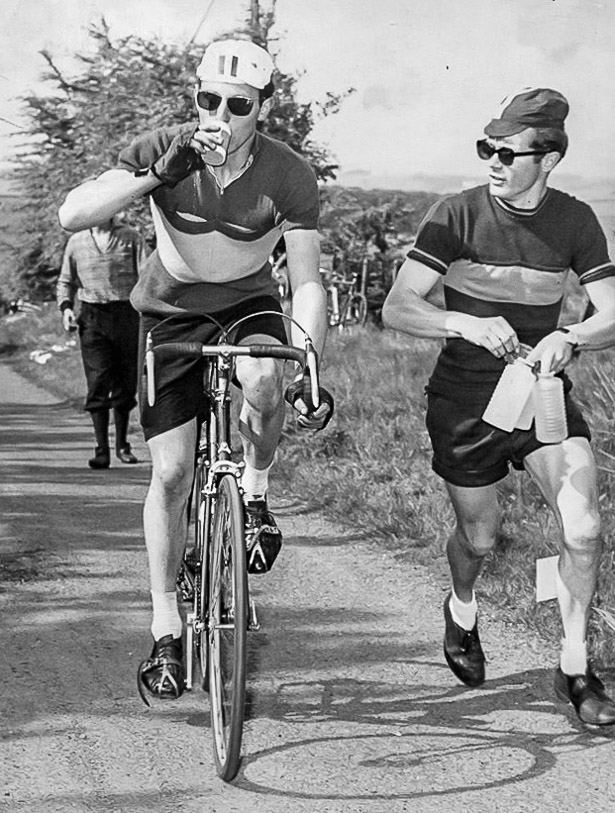
“The Velo” – we always associate the late Jocky Allan with that club?
“He wasn’t originally with us – he was with the Red Lion Couriers which became Edina Couriers.
“He became our mentor, he knew how to handle people – if you were ‘down’ after what you considered to be a poor ride he could lift you back up and have you on cloud nine.
“I was with the Velo for my whole racing career except for one season when I rode for the Comet in the Ronnie Boa/Jackie Tighe era.”
You were a versatile rider, weren’t you?
“Originally I rode time trials on fixed wheel then I began to ride them on gears then mixed my racing with road racing as well as time trials – I rode all distances from ‘10’ up 12 hours; with my best ‘12’ 252 miles.”
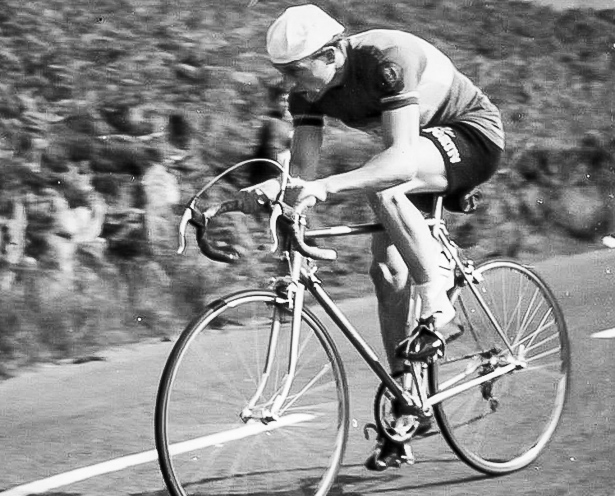
Looking back, which rides give you most satisfaction?
“I remember as a young rider doing a 2:7 to Joe Christison (an extremely talented rider who was Scottish Road Race Champion, a Tour of Britain stage winner and started the Vuelta a España, ed.) who went on to ride independent, recording a 2:4, it was blowing an absolute gale that day, that was a good ride.
“And there was my Scottish ‘50’ record – I remember Jocky shouting at me; ‘you’re on the record, don’t puncture or blow up!’
“I had good road race wins down at Newcastle and won the Glenmarnock 80 mile road race over the Cathkin Braes circuit – all rides which I remember with satisfaction.”
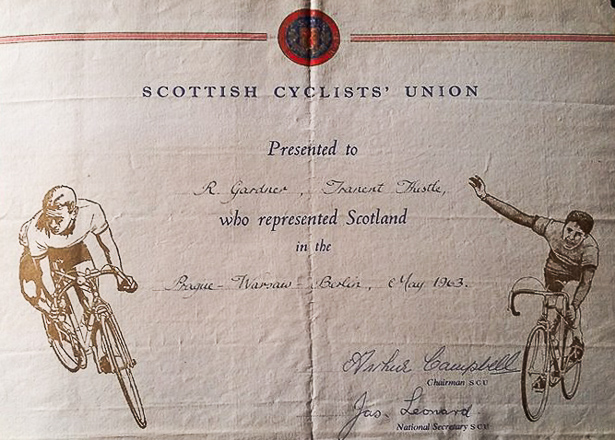
And you rode internationally for Scotland.
“My first ride for Scotland was the Capstan Three Day and then the Senior Service Three Day (changed days with cigarette companies lending their names to bike races, ed.) in the East of Scotland.
“I remember one of the stages was Glasgow to Saint Andrews and on another occasion Arthur Campbell caught Ernie Scally trying to jump in to a Mini to close the gap up to the break!
“Then I rode the Tour of Britain, which I did four times, twice for Scotland, once for the ‘Britannia’ team and once for the ‘North’ team.”
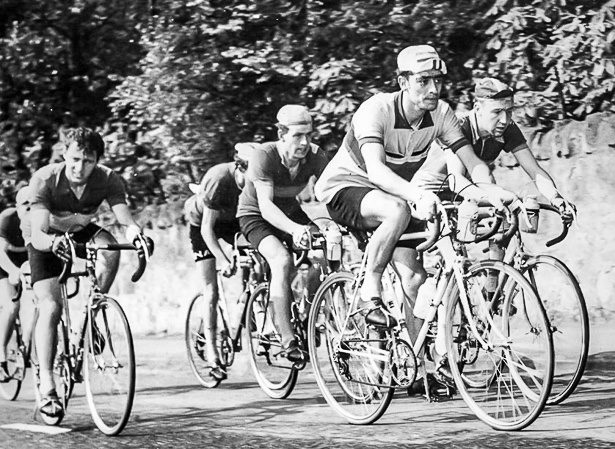
All hard races…
“Yes, they were hard races, we were a little worried that we had good enough form to be there but the English lads were all right ‘up for it’ at the stage starts and raring to go.
“The East Europeans were riding too; I was caught for two minutes then dropped for another minute by one of the Polish riders in a Tour of Britain time trial.
“Looking back our preparation wasn’t ideal; Jocky thought we should sharpen our speed up for it so Freddie Newman, John McMillan and I would meet at the GPO in the east end of Edinburgh and do a team time trial down the East Lothian coast.
“We’d do 27 miles in 1:20; 66” gear into the wind and 69” gear back – Brian Temple joined us on one occasion but couldn’t handle our pedalling speed on the way back and had to gear up to 76” with the wind.
“The Milk Races were tough with Spanish, Swiss, Polish, Danish and Norwegian teams all there.
“Chas. Messenger was the organiser and he had it going over these super steep climbs – I remember Shug Maguire having to walk on occasion.
“And if you crossed the white line you were immediately penalised, it was dictatorial organisation.
“I got fourth on one stage and racked up enough points to take sixth overall in the King of the Mountains competition; I was away on my own but the Spaniard Luis Santamarina – who was eventually kicked off the race for doping along with his team mates Canet and Usamentiag – came up to me then another two caught us and I was fourth.”
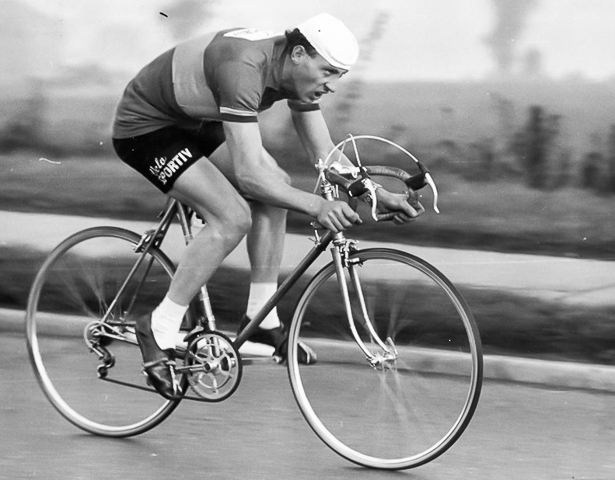
The Peace Race, how did you prepare?
“It was amateur preparation, I wasn’t working – my mother was ill at the time so I had to run the house.
“I was doing 40 miles during the day – but at 20 mph – then 25/27 miles with the lads at night.
“Jocky instructed Freddie and John to take me out the Lang Whang and ‘give me a doing’ to show me what it was going to be like – but I dropped the both of them!”
Who was in the team?
“Bertie Waugh, Shut McGuire, Gordon McNaught, Norrie Drummond, Tommy Murphy and me.
“Arthur Campbell was the manager, Jocky the mechanic and Brian the ‘assistant mechanic’ – talk about ‘jobs for the boys!’
“Looking back I wasn’t doing any more training than I normally did; we weren’t primed about what we were going into, no one explained it to us.”
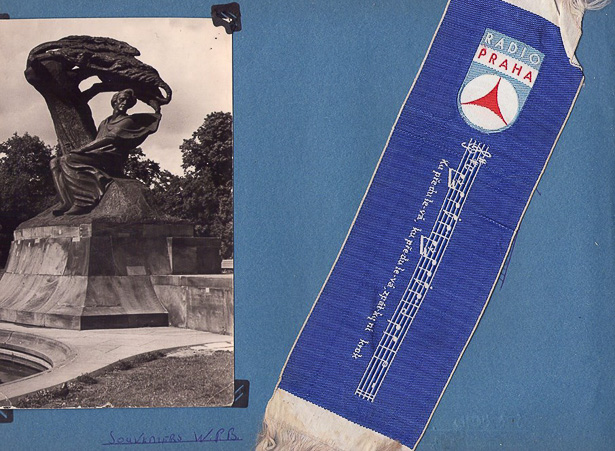
On the subject of mechanics, tell us about your bike.
“I rode a Flying Scot frame with Campagnolo hubs and gears, Stronglight chainset 49/52 rings, five speed transmission with a 100” top gear.
“I used Lyotard pedals, Mafac brakes, a Unica Nitor saddle with its own seat pillar (which was slotted and let you sit further back over the rear wheel), Mavic rims with d’Allesandro tubulars.”
How did you get out there in those pre-Easyjet days?
“We flew from Glasgow to London then from London to Prague – out of London was the first time I’d flown in a jet plane, I couldn’t believe the speed and the takeoff angle!
“When we arrived it was bright sunshine for three days, the sun was melting the tar – we stayed in university accommodation blocks.
“There was no advertising in Communist countries so there were no flashy team cars – it was all military jeeps.”
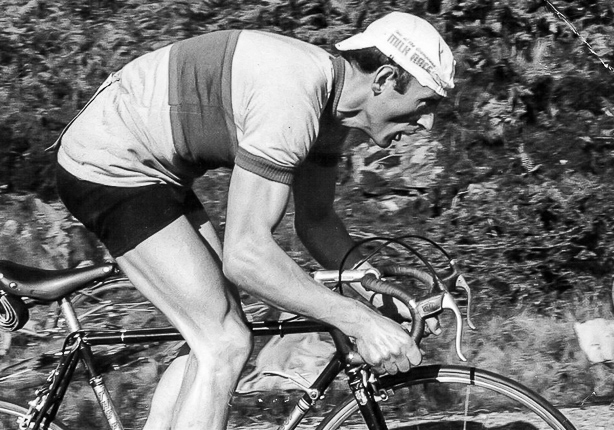
Impressions of the race?
“After the three days of sunshine, the heavens opened as soon as we started Stage One; it was actually Prague-Warsaw-Berlin that year.
“The East European guys were supposed to be amateurs but they were all full time bike riders and it was very fast.
“Some of the roads were poor but a lot of it was on good surfaces – albeit there were cobbled stretches which were pretty savage.
“The day after I crashed the stage was a circuit of Warsaw with a lot of cobbles – Bertie Waugh couldn’t hack them, chucked it and came to see me in hospital.
“The finishes were all in stadiums where the crowds were enormous, but even out in the wilds the peasants would all be out to watch the race and shout encouragement – but a lot of the time your head was down and you weren’t really aware of your surroundings.
“I remember the crowd noise at the finish was huge but as soon you finished you were wrapped in a blanket and whisked away in a jeep.
“I didn’t remember the climbs much; they were longer and steadier than they were in the Tour of Britain where you had these horrible 1 in 4 ramps.”
What were the East European riders like towards you?
“I was just a young guy, maybe I was a little naive but there was no feeling of ‘them and us,’ they’d smile to us in the bunch – and after the stages McGuire and McNaught would appear at night with samples of vodka!
“I can’t actually remember much about what we did of an evening after the stages but can’t imagine we just all went to bed.”
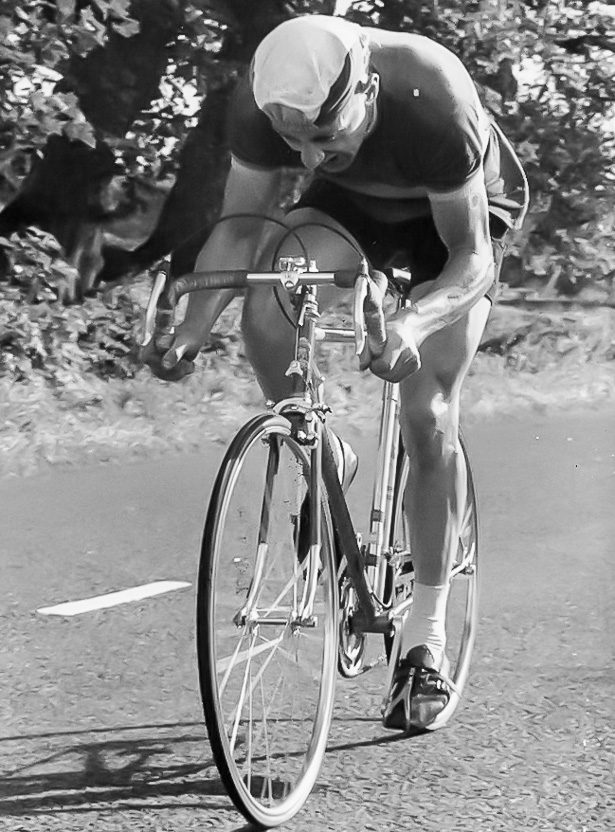
It wasn’t the best of races for you though, was it?
“No, I had two crashes, the first when my chain skipped but after that I was creeping back up the standings when I crashed again on Stage Six.
“It was windy, we were flat out in echelons, I was in the gutter and I rode full pelt into a briefcase which was laying there – of course other riders came down on top of me.
“I finished the stage but wasn’t allowed to start next day due to having concussion.
“They took me to hospital – I had scars on scars, I was in a mess and it wasn’t nice in the hospital with the humidity.”
Your last race, Ron?
“I think that would be the ‘25’ Champs which Jim Smillie won, I was second. I’d hoped to win to prove that I could still be good at 36 years young!”
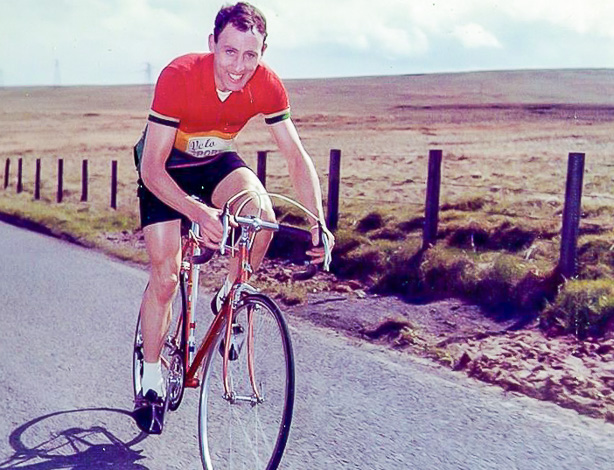
And if you had to do it all again?
“With the knowledge I have now I would train longer – and include interval training.
“I used to do 40 mile runs with the odd 60 miler – it was all at 20mph but even so, we could have done more…”
‘Could have done more’ or not, Ron Gardner’s career as an amateur bike rider couldn’t have been much more interesting or exciting – with thanks to Ron for his time and daughter Jenny for all her hard work to scan and email images for us.



